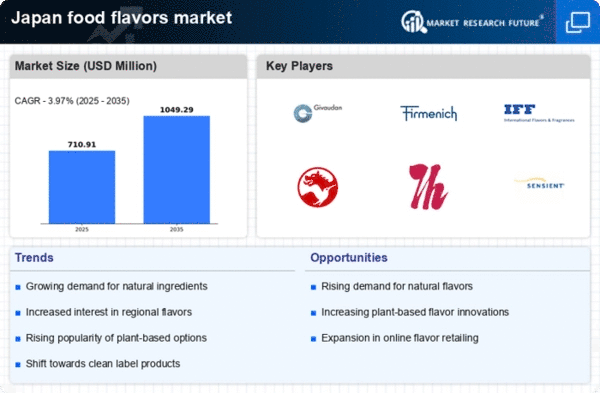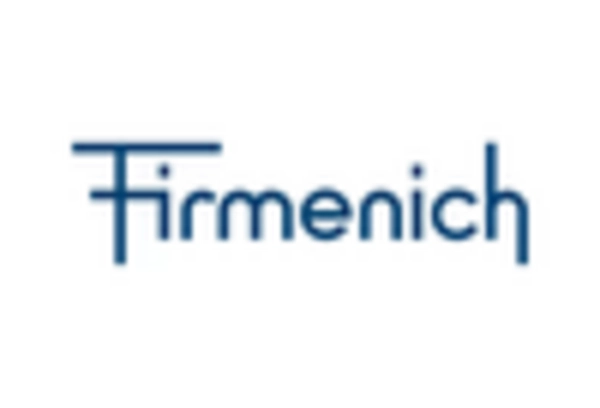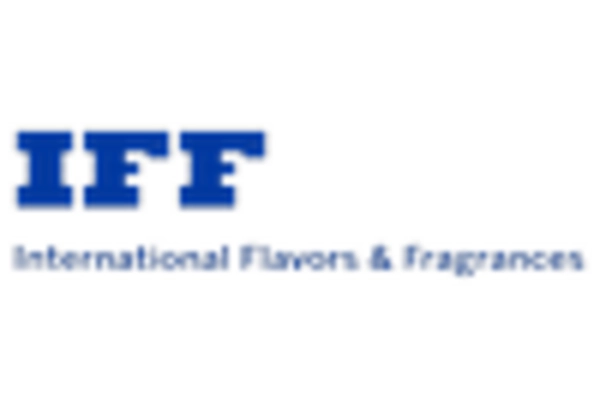Increased Focus on Clean Label Products
In Japan, there is a growing consumer preference for clean label products, which has a direct impact on the food flavors market. Shoppers are becoming more discerning, often scrutinizing ingredient lists for artificial additives and preservatives. This trend has prompted food manufacturers to reformulate their products, opting for natural flavors that align with consumer expectations for transparency and health. As a result, the clean label movement is projected to account for over 30% of the food flavors market by 2026. This shift not only reflects changing consumer attitudes but also encourages brands to innovate in flavor development while maintaining ingredient integrity.
Rising Demand for Unique Flavor Profiles
The food flavors market is experiencing a notable shift towards unique and exotic flavor profiles. Consumers are increasingly seeking out flavors that offer novel experiences, which has led to a surge in demand for innovative flavor combinations. This trend is particularly evident in the snack and beverage sectors, where brands are experimenting with unconventional ingredients. According to recent data, the market for unique flavors has grown by approximately 15% in the last year alone. This rising demand is pushing manufacturers to invest in research and development to create distinctive flavor offerings, thereby enhancing their competitive edge in the food flavors market.
Culinary Tourism Influencing Flavor Trends
Culinary tourism is significantly shaping the food flavors market in Japan, as travelers seek authentic local experiences. This trend has led to an increased interest in regional flavors and traditional Japanese ingredients, which are being incorporated into various food products. As tourists explore local cuisines, they often influence domestic consumers, creating a demand for flavors that reflect Japan's rich culinary heritage. This phenomenon is expected to drive a growth rate of around 10% in the food flavors market over the next few years, as brands capitalize on the popularity of regional specialties and traditional flavor profiles.
Sustainability Trends Driving Flavor Innovation
Sustainability is becoming a pivotal driver in the food flavors market in Japan, as consumers increasingly prioritize environmentally friendly products. This trend is prompting manufacturers to explore sustainable sourcing of flavor ingredients, which can reduce the ecological footprint of their products. Brands that adopt sustainable practices are likely to resonate with the growing segment of eco-conscious consumers, potentially capturing a market share of up to 20% by 2027. The emphasis on sustainability not only influences ingredient selection but also encourages innovation in flavor profiles that align with ethical consumption, thereby shaping the future landscape of the food flavors market.
Technological Advancements in Flavor Development
Technological advancements are playing a crucial role in the evolution of the food flavors market in Japan. Innovations in flavor extraction and synthesis techniques are enabling manufacturers to create more complex and appealing flavors. These advancements not only enhance the sensory experience of food products but also allow for greater customization to meet specific consumer preferences. The integration of technology in flavor development is anticipated to boost market growth by approximately 12% annually, as companies leverage these tools to differentiate their offerings and respond to the dynamic demands of the food flavors market.
















